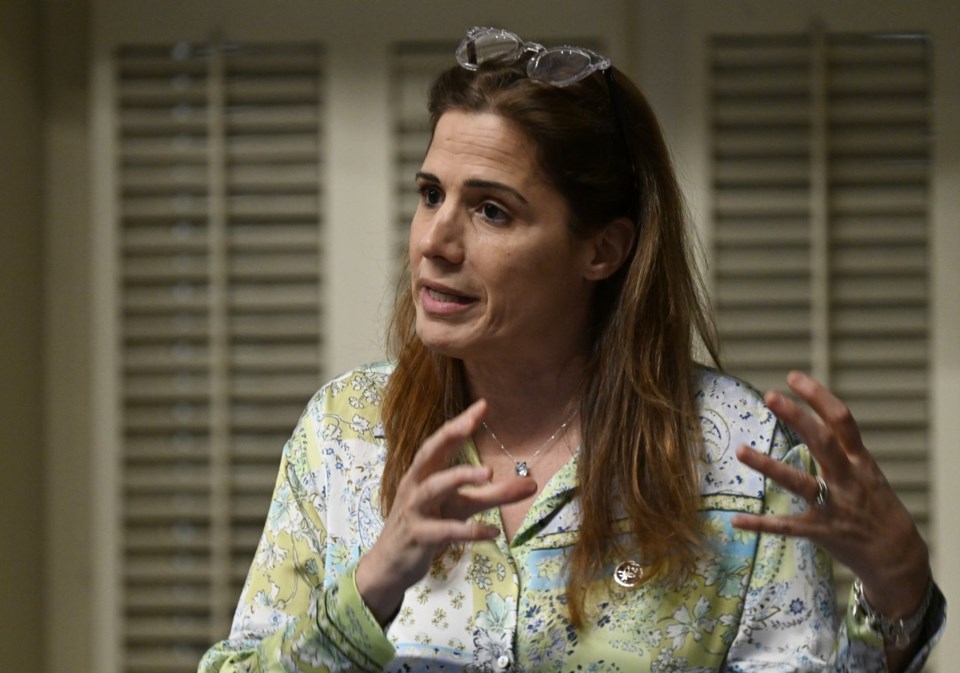MONTREAL — Prayer rooms, political student groups and controversial course content are fuelling a climate of tension and mistrust at two of Quebec's junior colleges, according to a new government report.
The report, published Friday by Quebec's Education Department, says prayer rooms can foster radicalization and divisions between students. It also questions whether the rooms even belong in public colleges.
This is among a range of issues highlighted in the report, from the sale of kaffiyehs on campus to language classes focused on Palestinian culture, which it says are causing strain among students and teachers.
"We absolutely have to find a way to return to a healthy climate," said Higher Education Minister Pascale Déry in an interview. "Because a climate of tension and a climate of mistrust has reigned in these two establishments for several months."
The 71-page document is the result of a months-long investigation at Dawson and Vanier colleges, two English-language junior colleges in Montreal. It was launched last November following complaints that tensions around the Israel-Hamas war had created an unsafe atmosphere on campus.
The report recommends that the government adopt a new law to regulate academic freedom in the college system. It also says the province should ensure its secularism rules are fully respected.
Déry did not say how the government will respond to the report, or whether it will ban prayer rooms in junior colleges. The Coalition Avenir Québec government has already barred public schools from making space available for students to pray.
"Respect for the principles of secularism is non-negotiable," Déry said. She pointed to a line in the report that describes how a prayer room for Muslim students at Vanier College has a dividing curtain so that women and men don't pray together.
"For us, it is not normal that within a public organization, we separate men and women," Déry said.
In a joint statement, the two colleges noted that several of the recommendations would affect the entire college network.
"We hope that this process will help strengthen our cohesion around our differences and support a continuous effort to improve the learning environment we offer our student communities," they said.
The two colleges also said they were surprised by how the government released the report, saying they only received a copy on Friday after it had been shared with some media outlets.
The report focuses heavily on pro-Palestinian student groups and activities, and says colleges lack the power to intervene when the actions of student clubs run counter to the institutions' values.
It notes that kaffiyehs are sold weekly at Dawson, and that a Palestinian student group at Vanier promotes wearing the scarves, which symbolize solidarity with Palestinians.
"It is clear from the testimonies heard that this activity creates tensions, as opinions diverge on this cause," the report says. It found that pro-Palestinian student groups at both colleges are violating their own constitutions, which say they must not be political.
The investigation also found that the principle of academic freedom is not applied uniformly across the college system, which it says can cause "tensions and friction" between teachers.
It says the selection of guest speakers and topics for symposiums can often be controversial, leading to suspicion and the formation of cliques among teachers.
It also says students raised concerns about two classes at Dawson and Vanier that focused on Palestinian culture, despite being billed as language classes. At Vanier last winter, an English class on contemporary fiction was replaced at the last minute with a course on Palestinian short stories.
Opposition parties and academic unions accused Déry of political interference after she asked Dawson last year to evaluate a French literature course focused on Palestinian culture. On Friday, she defended that decision.
"I'm doing my job," she said. "I ask questions. I'm going to continue to ask questions if I need to ask questions."
The report found that colleges have little control over course content. "Academic freedom does not justify activism or the promotion of ideologies in any form," it says.
The investigation also found that the student newspaper at Dawson College, called The Plant, lacks faculty oversight. The newspaper came under fire in November 2023 for its coverage of the conflict in the Middle East, including a caricature it published that some considered to be antisemitic.
Winie Coulanges, the current editor-in-chief of the newspaper, said its staff were not consulted by investigators, and the report unfairly taints their reputation.
“People focus a lot on antisemitism in colleges, but I don't see as much care or attention being brought to Islamophobia in colleges,” she said.
“A lot of people are feeling unsafe, they're not feeling respected, they're feeling discriminated against, but it's more than just one group of people.”
Neil Oberman, a Montreal lawyer who submitted a complaint to the government last year calling for an investigation at Dawson College on behalf of a student, said he’s pleased with the report, but its recommendations don’t go far enough.
“My reaction as a human being who has to deal with these poor students is they want relief,” he said. “To get relief, they need enforcement.”
This report by The Canadian Press was first published June 27, 2025.
Maura Forrest, The Canadian Press



